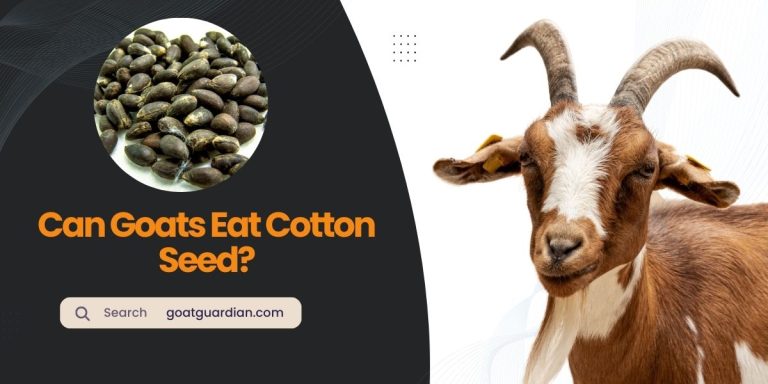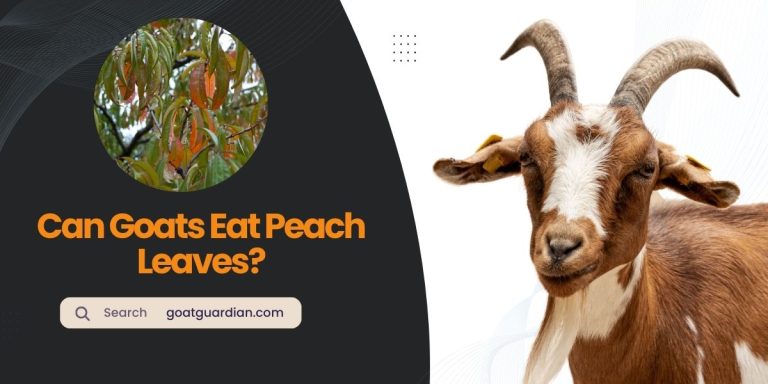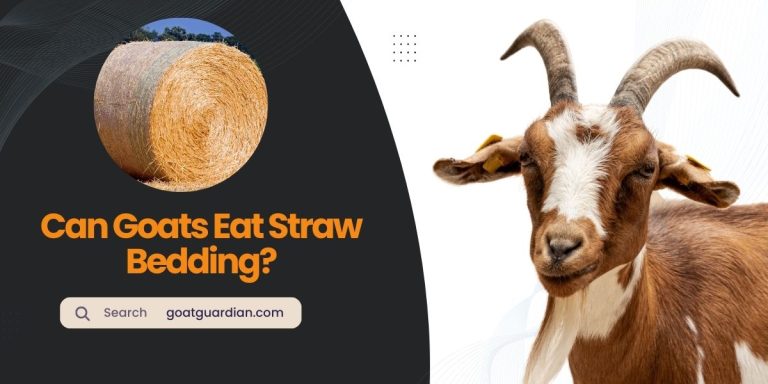Can Goats Eat Wet Hay? (Importance of Feeding)
Goats should not be fed wet or moldy hay, as it can be harmful to their health. Wet bales of hay can be dried thoroughly and then used as goat feed, as long as all mold and mildew has disappeared.
Feeding goats wet hay can lead to sickness and should be avoided. Wet hay can contain harmful bacteria that can make goats sick, so it’s important to only feed them dry, quality hay. Additionally, wet hay can lead to mold growth and combustion, so it’s best to ensure that hay is properly dried before feeding it to goats.
Providing goats with dry, high-quality hay is essential for their rumen to function properly and maintain good health.
Importance Of Feeding Goats Dry Hay
| Wet hay can be dangerous for goats: |
| Feeding goats wet hay can put them at risk of getting sick due to harmful bacteria that may be present in the wet hay. |
| Harmful bacteria in wet hay can make goats sick: |
| Wet hay can contain harmful bacteria that can make goats sick. It is essential to avoid feeding them hay that is wet or has been exposed to moisture. |
| Moldy hay and grain should be avoided: |
| It is crucial to avoid feeding goats hay or grain that is moldy. Mold can be harmful to their health and can lead to digestive issues. |
| Moist feeds formulated with molasses can have a high incidence of mold: |
| Moist feeds that are formulated with molasses can have a high incidence of mold, especially in hot weather. It is best to avoid feeding such feeds to goats. |
Risks Associated With Feeding Wet Hay
| Refusing wet hay: Can Goats Eat Wet Hay? While goats can sometimes eat wet hay, they have been known to refuse it. If the hay is freshly wet and the goats will eat it, then it is generally okay to feed them. |
| Mold and mildew presence: Wet hay can harbor mold and mildew, which can be harmful to goats. It is important to thoroughly dry wet hay and ensure that all mold and mildew has disappeared before feeding it to goats. |
| Potential contamination from harmful bacteria: Wet hay can also contain harmful bacteria that can make goats sick. If you suspect that your goat has eaten wet hay, it is important to monitor their health and seek veterinary attention if necessary. |
Proper Handling And Feeding Techniques
|
Alternatives To Wet Hay
|
Feeding goats wet or moldy hay or grain can be detrimental to their health. It is important to ensure that any wet grain is discarded, while wet hay can be salvaged if properly dried. However, the hay should only be used if it is lightly wet and free of mold and mildew. Goats may eat wet hay, but they have been known to refuse it. If the hay is freshly wet and the goats are willing to eat it, then it is acceptable to feed them. To prevent spoilage and potential harm to goats, it is recommended to consider alternatives such as feeding baleage. Baleage can be fed to goats like hay, but it should be used within a few days after unwrapping to avoid spoilage. It is important to prioritize the timely use of baleage to ensure its quality and safety for goats. |
| Importance of timely use of baleage to prevent spoilage |
|
Baleage, a viable alternative to wet hay, should be used promptly to prevent spoilage. When feeding baleage, it is crucial to use it within approximately five days after unwrapping the bale, preferably within three to four days in warm weather and six days in cooler conditions. Baleage that has been stored beyond this timeframe may risk spoilage and potentially harm goats. Additionally, it is essential to avoid feeding goats wet or moldy hay and grain, as they can contain harmful bacteria that can make goats sick. If there is a suspicion that goats have consumed wet hay, it is advisable to monitor their health closely and consult a veterinarian if necessary. |
Symptoms And Dangers Of Eating Moldy Hay
|
Feeding wet or moldy hay or grain to goats should be avoided. Wet grain must be thrown out, while wet bales of hay can be broken and aired out until thoroughly dry, then used as goat feed, if the bales are lightly wet and all mold and mildew has disappeared. Goats should never be fed wet or moldy hay or grain, as it can be toxic and pose health risks. Eating moldy hay can lead to an increased incidence of listeriosis in goats, which is a serious bacterial infection. Other potential illness and health issues may arise from consuming moldy hay, affecting the overall well-being of the goats. Therefore, it is crucial to ensure that hay fed to goats is dry and free from mold or mildew. It is important to take precautions and avoid feeding hay that has been rained on or bales that have been exposed to moisture. Wet hay can contain harmful bacteria that can make goats sick. If wet hay is suspected to have been consumed, it is recommended to monitor the goats for any signs of illness and contact a veterinarian if needed. |
Best Practices For Hay Feeding
Quality Control Measures When Sourcing Hay
When it comes to feeding goats, it is crucial to prioritize their health and well-being. Therefore, it is important to avoid feeding them wet or moldy hay or grain. Wet grain should be thrown out, while wet bales of hay can be aired out and dried thoroughly before being given to the goats.
However, it is essential to ensure that all mold and mildew have disappeared from the hay to prevent any potential health issues. Regular inspection of hay for mold and mildew is necessary to guarantee its quality.
Additionally, it is recommended to avoid feeding goats hay that has been rained on or baled wet, as it may not be suitable for their consumption. By following these quality control measures, you can ensure that your goats receive the best nutrition without risking their health.
Frequently Asked Questions Of Can Goats Eat Wet Hay
Does Hay Go Bad If It Gets Wet?
Wet hay can go bad due to moisture, leading to mold growth. It is unsafe to feed goats wet or moldy hay as it can make them sick. If the hay is lightly wet and all mold and mildew have disappeared after being aired out, it can be used as goat feed.
Do Goats Need Dry Hay?
No, goats should not be fed wet or moldy hay as it can make them sick. If hay is lightly wet and all mold and mildew have disappeared, it can be broken and aired out until thoroughly dry before using it as goat feed.
Can Goats Handle Moldy Hay?
No, goats cannot handle moldy hay. It is important to never feed goats wet or moldy hay as it can be toxic and make them sick. Wet hay should be aired out and thoroughly dried before using it as goat feed.
Can You Leave Hay Out For Goats?
No, goats should not be fed wet or moldy hay as it can be harmful to their health. Wet bales of hay can be broken and aired out until thoroughly dry before using them as goat feed. It is important to ensure that all mold and mildew has disappeared from the hay before feeding it to goats.
Conclusion
Feeding goats wet hay can pose significant health risks. Wet hay can contain harmful bacteria that can make goats sick. It is important to never feed goats hay that is wet or moldy. If you suspect your goat has eaten wet hay, monitor them closely for any signs of illness and contact a veterinarian if necessary.
Maintaining good quality and dry hay for your goats is essential for their well-being. Remember, their health should always be your top priority.






